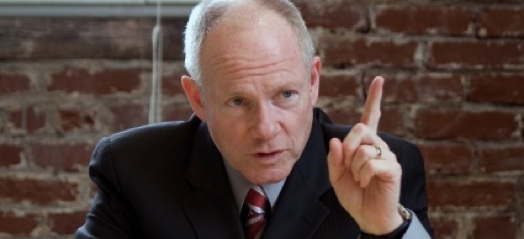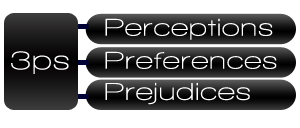Preference, Preference, and Prejudice and Your Customer – A Deep Dive!
 This is, and will remain, an important topic. No matter whether it is the 60s, 70s, 80s, 90s or any decade in the 2000s. Some things will get incrementally better, yet hope that they will change is still an interesting premise.
This is, and will remain, an important topic. No matter whether it is the 60s, 70s, 80s, 90s or any decade in the 2000s. Some things will get incrementally better, yet hope that they will change is still an interesting premise.
_________________
This post will reinforce the fact that the customer makes choices, and the sales professional must determine the way to interface and find success. This post will show clarification of my view on racial perceptions, racial preferences, and racial prejudices. I will also expand on some previous posts as to ways to change increase effectiveness when faced with preferences and prejudice from your prospect or buyer in some of my upcoming posts. I have dealt with it in earlier posts; yet will impose a more striking angle in the upcoming posts.
The reality is that an understanding of these two items is essential in the day-to-day activities of the Black sales professional.
The 3Ps – Perceptions, Preferences, Prejudices
Racial Perceptions
Perceptions can slowly be changed. They exist, and come from many sources. A person’s life experiences, the media, parents, friends, and the knowledge and ignorance of interaction or lack of interaction formperceptions. When these life experiences are negative, we have negative perceptions that fuel preferences and help substantiate prejudices.
Perceptions are normally wrong based on their application against a group of people based on some input which was either not factual, or was spread across a group of people without warrant. We will talk more about perceptions in an upcoming post, exposing activities that help to give credence to the negative perceptions.
Perceptions are prevalent in all racial and ethnic groups, and we should not criticize perceptions that we disagree with if we are going to carry perceptions of our own which are damaging to other races or ethnic groups. We all need to fight against this activity.
Racial Preference
Preferences are a different and are powerful. They are not always meant to be deleterious to a race or ethnic group, yet can have the same effect. Your customer’s level desire of whom they want to work with is directly related to their relationship comfort. That does not make it right. Some of the preferences come from perceptions and some come from prejudice, yet preference is more substantial than those two inputs. Comfort levels, familiarity, a lack of understanding, and some “lumping” of people into groups based on common elements manifest preference.
As an example, putting all Hispanics or African Americans into respective group on the basis that their ethnic background and “perceived” activities that are similar in nature is a perception which can be damning. It is not often thought of that way, yet it is true.
Whether it is preference or it is prejudice, the effect is the same; lost opportunities, lack of diversity, locking out of good people of all races and ethnic backgrounds.
Racial Prejudice
Prejudice in life, and what we do from the standpoint of an occupation is wrong. If we define prejudice as Webster does, “an irrational attitude of hostility directed against, [in this situation] a group or race”, it is insidious.
To discriminate because of race, ethnicity, or gender is at the base of everything we should never endorse. When it comes to sales, it is no different. It is not manufactured by anything substantive, but is fueled by narrow-mindedness. I am sure you recognize that if it is wrong for one group, it is wrong for all.
Prejudice changes the landscape. It cannot necessarily be changed, and any changes may well be short lived. It robs the Black sales professional of opportunity and in some cases, based on your territory, success, yet exist, and will not be removed from the marketplace in my lifetime.
I will aver in an upcoming post that as sure as we are that prejudice exists, it is much less prevalent than the problems with preference. This, we need to recognize. We can change perceptions…we can overcome preference. Should we spend time trying to solve or sell when prejudice is involved?
Blacks who discriminate against Hispanics or Whites in the sales arena are in the same “boat” as other ethnic groups that discriminate. Whites who are in positions of power get more attention because of their roles. The truth is that prejudice whether in a role of power or any role is wrong.
Why is this a Big Deal?
This is a big deal because recognition and tactics are so important for success. There are tactics to defeat racial preference. There are tactics to nullify and change negative racial perceptions. Racial prejudice is different. It is pervasive and even in situations where you are given the business, a positive relationship does not exist, so the business is potentially borrowed anyway.
There is no situation more gratifying than enjoying your occupation and getting a fair opportunity to perform it to your best ability. Learning what you can change and what you cannot will conserve energy for redirection to positive tasks, as well as promote growth.
I hope you will read these items in the next couple of weeks.
Please check the upcoming posts tab for a general listing.
Your comments are welcome. Your comments are welcome. You can reach me at Michael.Parker@BlackSalesJournal.com.
 December 31, 2015
|
Posted by Admin9!
December 31, 2015
|
Posted by Admin9!
 Categories:
Categories:  Tags:
Tags: 

Your Comments